Media Release
Mangaluru, Jul 25: In a significant step towards integrating faith with modern communication, a group of Apostolic Carmel (AC) sisters preparing for their final profession underwent a week-long media training programme at their formation centre in Mangaluru. The initiative, led by Fr Sudeep Paul MSFS, a media educator and communications specialist, director, Sandesha Foundation for Culture and Education, was aimed at equipping the sisters with the ethical, spiritual, and practical competencies required to engage effectively with the digital world, while remaining deeply rooted in their religious vocation and apostolic mission.
The training programme was designed with a holistic and forward-thinking approach, acknowledging the rapidly evolving landscape of media and its profound impact on religious life, identity, and evangelization. The sessions were interactive and reflective, covering four key areas: media ethics, digital identity, the role of media in the Church, and online safety.
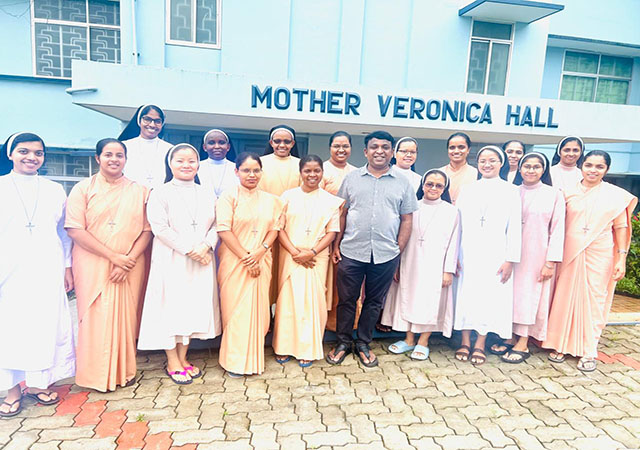
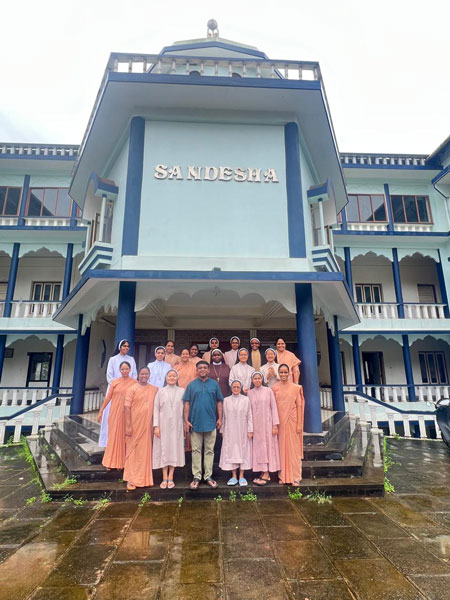
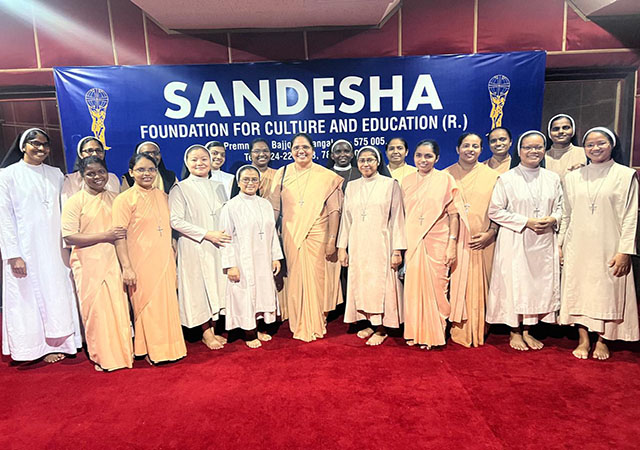
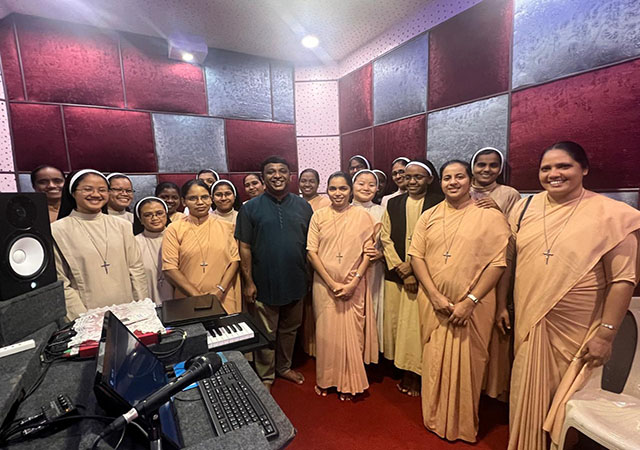
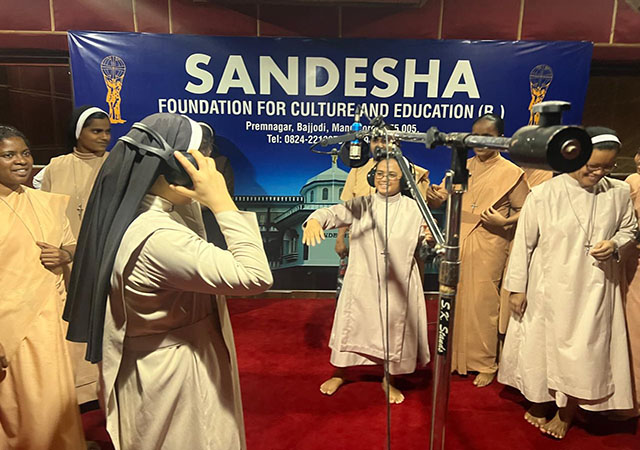
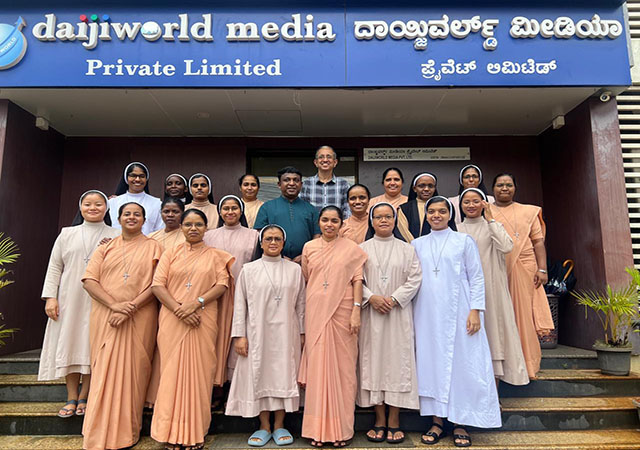
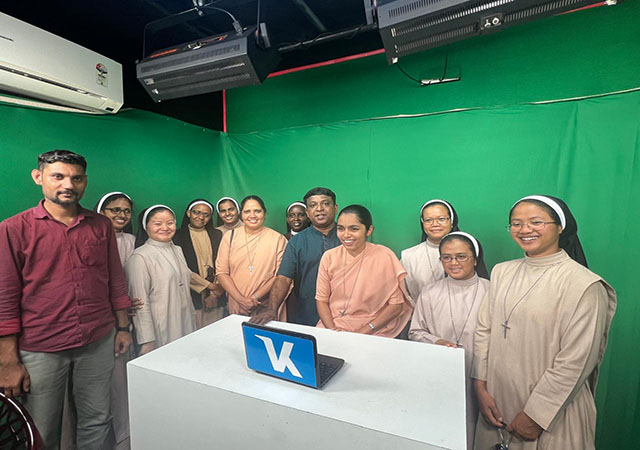
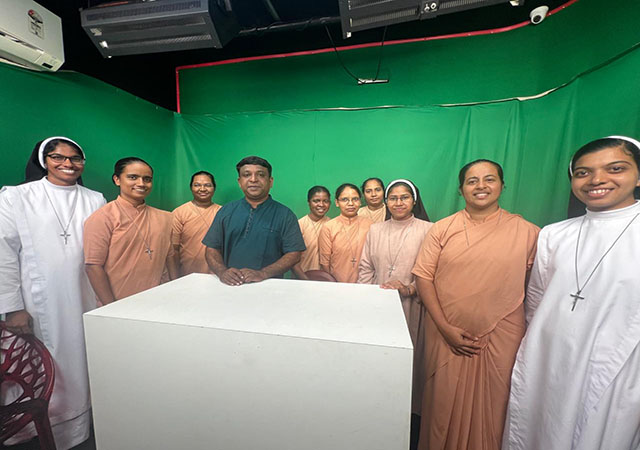
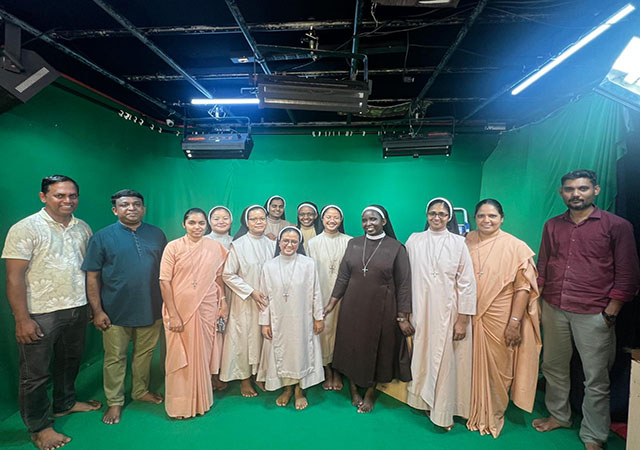
In the first module on ethical dimensions of media, the sisters explored the moral and social implications of digital communication, focusing on pressing issues such as artificial intelligence, deepfake technology, digital manipulation, and misinformation.
Discussions centred around the importance of truthfulness, responsibility in content creation, and the need to foster a culture of integrity in online engagement.
The second focus area, media and personal identity, addressed how digital media influences one’s self-perception, relationships, and spiritual journey. Topics such as digital addiction, comparison culture, and authenticity were explored, prompting the sisters to reflect critically on their media habits and to develop a healthy, balanced relationship with technology.
In the session on Media and the Church, the sisters examined how communication tools can be harnessed for evangelization, catechesis, and community building. They also discussed the challenges posed by digital distractions, the importance of safeguarding privacy, and the strategies for effective religious communication on platforms such as Instagram, YouTube, and WhatsApp. The goal was to empower the sisters to share the Gospel meaningfully through contemporary channels while preserving the sacredness of their vocation.
The fourth module, digital ethics and online scams, highlighted the darker side of the digital world, raising awareness about various cyber threats. The sisters were educated on phishing scams, identity theft, and the rising cases of ‘digital arrest’ fraud. They were trained in basic digital hygiene, secure online practices, and how to protect themselves and their future communities from digital exploitation.
An innovative aspect of the training was the introduction to new-generation AI tools for creative media production. The sisters were introduced to user-friendly platforms for AI-generated music and video content, which they used to experiment with faith-based digital storytelling. These hands-on sessions encouraged them to approach technology not with fear but with curiosity, creativity, and discernment.
In addition to theoretical learning, the sisters gained practical skills in journalism and content creation. They were trained in writing news reports, editorials, and features, as well as in scripting for videos and stage presentations. These competencies are expected to enhance their ability to communicate the Gospel effectively, whether through newsletters, parish bulletins, school platforms, or social media.
To offer experiential learning and exposure to professional faith-based media, the sisters visited three prominent institutions. At Daijiworld Television, a leading multilingual media house, they observed the workflow of news production and broadcasting. Their visit to Carmel Kiran Media, the Apostolic Carmel congregation’s own media apostolate, deepened their understanding of in-house content creation and outreach. At the Sandesha Foundation for Culture and Education, a well-known centre for Church communications and the arts, the sisters witnessed how media and culture can be harmonized for evangelization.
The programme concluded with practical exercises, group discussions, and spiritual reflection. Through these, the sisters were invited to see media not just as a tool but as a mission field – a space where they can bear witness to Gospel values with courage, creativity, and compassion. The training deepened their awareness that as religious women in the digital age, they are called not only to serve but also to communicate Christ with clarity and conviction.
As they now prepare for their final profession, the Apostolic Carmel sisters carry with them not only the fire of their vocation but also the tools and skills to be faithful and effective digital missionaries in a connected world.